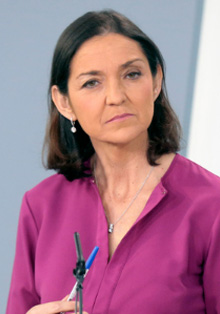Ambassador José María Liu
Representative of the Economic and Cultural Office of Taipei in Spain
Some in better conditions than others, all the countries of the planet continue to struggle today to survive the covid-19 pandemic, which has so far caused more than three million deaths and more than 154 million cases worldwide. But none of us can do it alone: if there is one thing we have all learned from this terrible health crisis, it is that international cooperation is the only way to successfully stop such a pandemic.
The World Health Organization (WHO), the body responsible for ensuring global health security, should know this better than anyone. However, during the past year 2020 the World Health Assembly (WHA), which is the highest decision-making body of this organization, chose one more year to bow to Chinese pressure and not invite Taiwan, as it had been doing since 2017, thus opening a terrible breach in the international health system with unpredictable repercussions.
Nevertheless, and despite being alone and isolated from WHO mechanisms, meetings and activities, from the moment this health crisis began Taiwan has been remarkably effective in containing the spread of covid-19 and has remained largely virus-free. Because of its proximity to China, it was expected to be one of the countries most severely affected by the pandemic. It has not been. By the end of April 2021, Taiwan had recorded just over eleven hundred confirmed cases, mostly imported, and twelve deaths. Such figures have made it a true example for the whole world to follow.
This has been recognized by international indices, such as that of the Lowy Institute, based in Australia, according to which Taiwan, together with New Zealand and Vietnam, tops the ranking of the almost one hundred countries that have best managed the covid-19 pandemic. Or the recent study by the Journal of the American Medical Association (JAMA), which highlights the speed and combination of effective measures as the key to Taiwan’s success in containing the spread of the virus.
The so-called “Taiwan model” for pandemic containment has been characterized, above all, by the strength of its healthcare system, transparency of information, public-private coordination, diligent contact tracing, use of Big Data technology, and rapid and effective border management. To this, Taiwan has added its experience in containing the SARS epidemic in 2003, very similar to this one, a continuous and exemplary citizen collaboration and a strong distrust of the information, or rather the lack of transparency, coming from the Chinese mainland, which immediately set off all the alarms.
To the undoubted health success achieved, Taiwan must add the outstanding development of its economy which, in marked contrast to the rest of the world, has hardly been affected by the world crisis. The country has not had to confine its population, nor has it had to close companies or businesses. Its economy closed 2020 with a growth of 3.11 percent, making it the best performing economy in Asia, and for 2021, its growth forecast is 4.64 percent.
In addition to its solid and efficient management, Taiwan still has to add to its credit its example of solidarity with the international community thanks to the implementation of its slogans “Taiwan can help” and “Taiwan is helping”, through which it has donated a total of 54 million surgical masks to more than 80 countries, half a million of them destined for Spain with priority for health personnel. As part of this same aid policy, Taiwan has just sent to India, one of the countries that is now being hit hardest by the pandemic, a first batch of medical supplies including 150 oxygen generators and 500 oxygen cylinders.
Despite the strong support it has received and continues to receive from Europe, the United States and like-minded countries, Taiwan continues to receive no invitation to participate in the World Health Assembly (WHA), which holds its 74th session from May 24 to June 1, 2021. Such a thing should be unthinkable, because the pandemic knows no borders or nationalities, and because Taiwan’s exclusion not only goes against the right to health of the 23.5 million Taiwanese, but also deprives the international community of the knowledge and experience that Taiwan could bring to the rest of the world.
The covid-19 pandemic has shown that no one is immune to this virus and we must not allow China’s hegemonic expansion to stand in the way of a more comprehensive effort to combat it. This is a health issue that should remain free of politicization. Now, Taiwan has created a new slogan to add to the previous ones: that of #LetTaiwanHelp (“let Taiwan help”). By adhering to this new slogan, Taiwan is calling on the entire international community to fully support its participation as an observer at the 74th World Health Assembly, and its full incorporation into WHO meetings, mechanisms and activities, an agency that would thus also see its own motto, which it seems to want to forget, of “leaving no one behind” fulfilled.
© All rights reserved






